| | Trump makes new tariff threats even as his Treasury secretary hints at a pause, hopes rise for a Gaz͏ ͏ ͏ ͏ ͏ ͏ |
| |  | Flagship |  |
| |
|
The World Today | 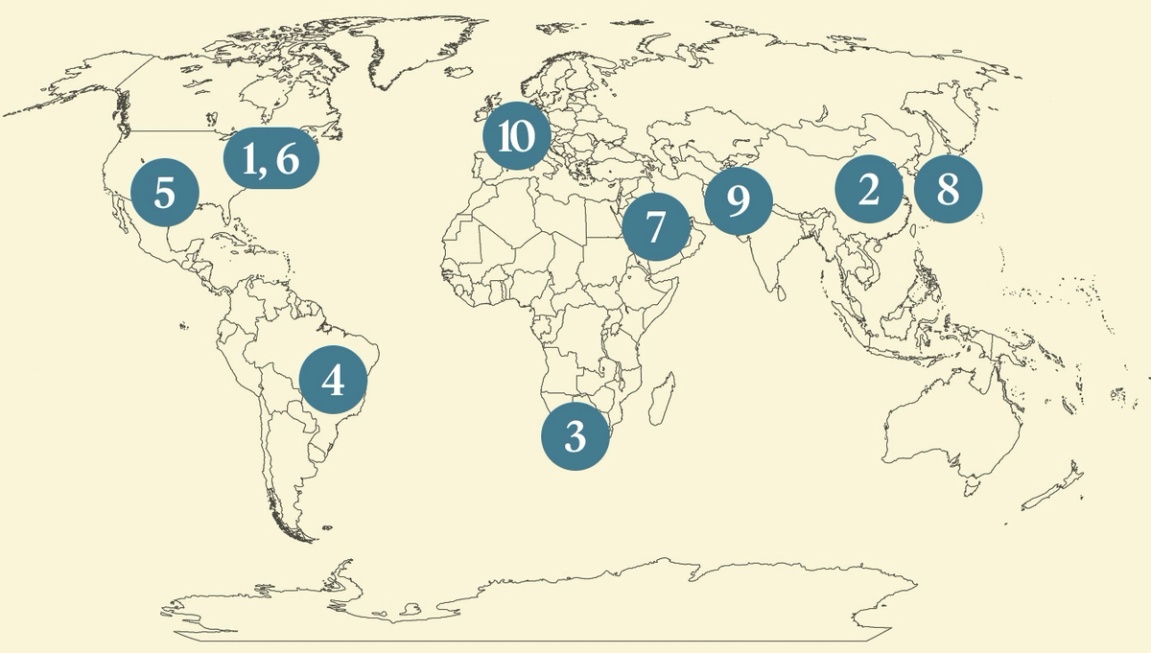 - Trump trade deadline looms
- China hits back at EU
- African farmers’ tariff fear
- LatAm investment falls
- The toll of Texas’ storms
- Netanyahu-Trump meeting
- OPEC’s output hike
- Japan’s nuclear revival
- Solar problem for Pakistan
- Swimmers return to Seine
 The London Review of Substacks, and a ‘genre-shattering’ music recommendation. |
|
Trump trade deadline looms |
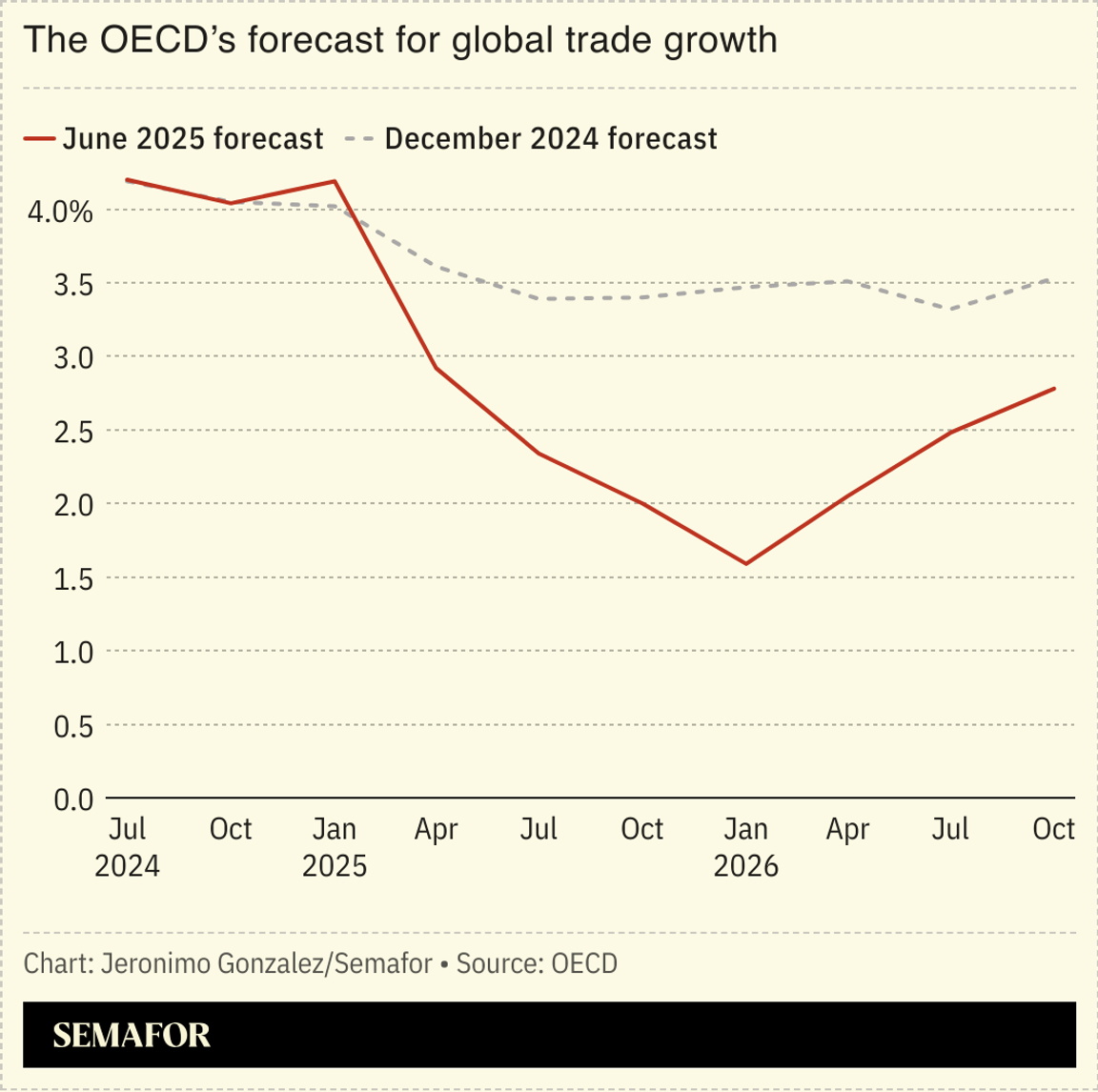 US President Donald Trump made fresh tariff threats against major trading partners even as his Treasury secretary suggested extending a pause on the levies. The sharply diverging remarks encapsulated the White House’s headspinning trade policy: Trump threatened to impose a 10% duty on countries aligned with the BRICS bloc following a weekend summit, while Scott Bessent voiced openness to continuing trade negotiations beyond Wednesday, when a reprieve on Washington’s “Liberation Day” duties expires. Global stock markets fell amid the uncertainty. The White House’s rhetoric has become more circumspect recently: The administration predicted it would reach 90 trade deals during its 90-day tariff suspension, but is now targeting a handful of agreements while postponing the most vexing issues. |
|
China retaliates against EU |
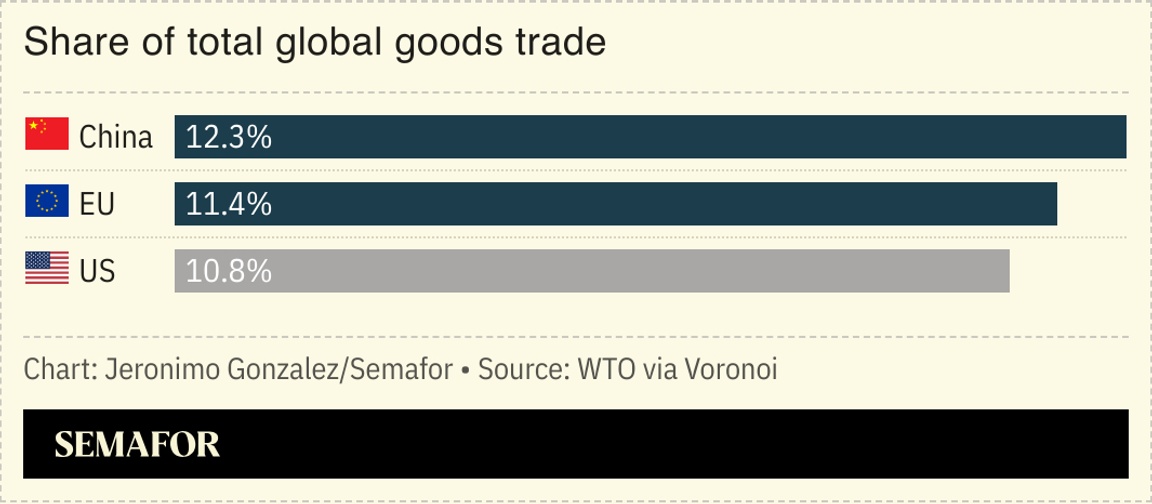 China hit back at European Union trade restrictions, weeks before a summit meant to celebrate 50 years of the pair officially establishing diplomatic relations. Beijing’s ban on the sale of European medical devices came in response to Brussels’ own curbs. The move was largely symbolic — such trade is relatively minimal — but demonstrated the worsening of their ties: Brussels is reportedly pressuring Beijing to raise its target for cutting greenhouse gas emissions ahead of this month’s meeting. The two are also locked in disputes over China’s support for Russia’s invasion of Ukraine, EU curbs on Chinese EV sales, and European dependence on Chinese rare earths. “Tensions are rising each day as we approach the summit,” one expert told Le Monde. |
|
Tariff threats hit African farmers |
 Wikimedia Commons photo/South African Tourism/CC BY 2.0 Wikimedia Commons photo/South African Tourism/CC BY 2.0Washington’s tariff threats have upended Africa’s agriculture industry, leaving farmers across the continent racing to adapt. In South Africa, the world’s second-biggest producer of citrus fruits, growers are bracing for the potential impact of Washington’s threats of 31% tariffs. Some farmers in the country hope the tariffs’ impact on US consumers will force the White House to backtrack. “We’ve become dependent on the US market,” one told Bloomberg. “But… US consumers have also become dependent on our fruit.” Ethiopian soy producers are more buoyant, bolstered by China’s move to reduce its import dependence on the US, with Addis Ababa and Beijing recently signing an export agreement. |
|
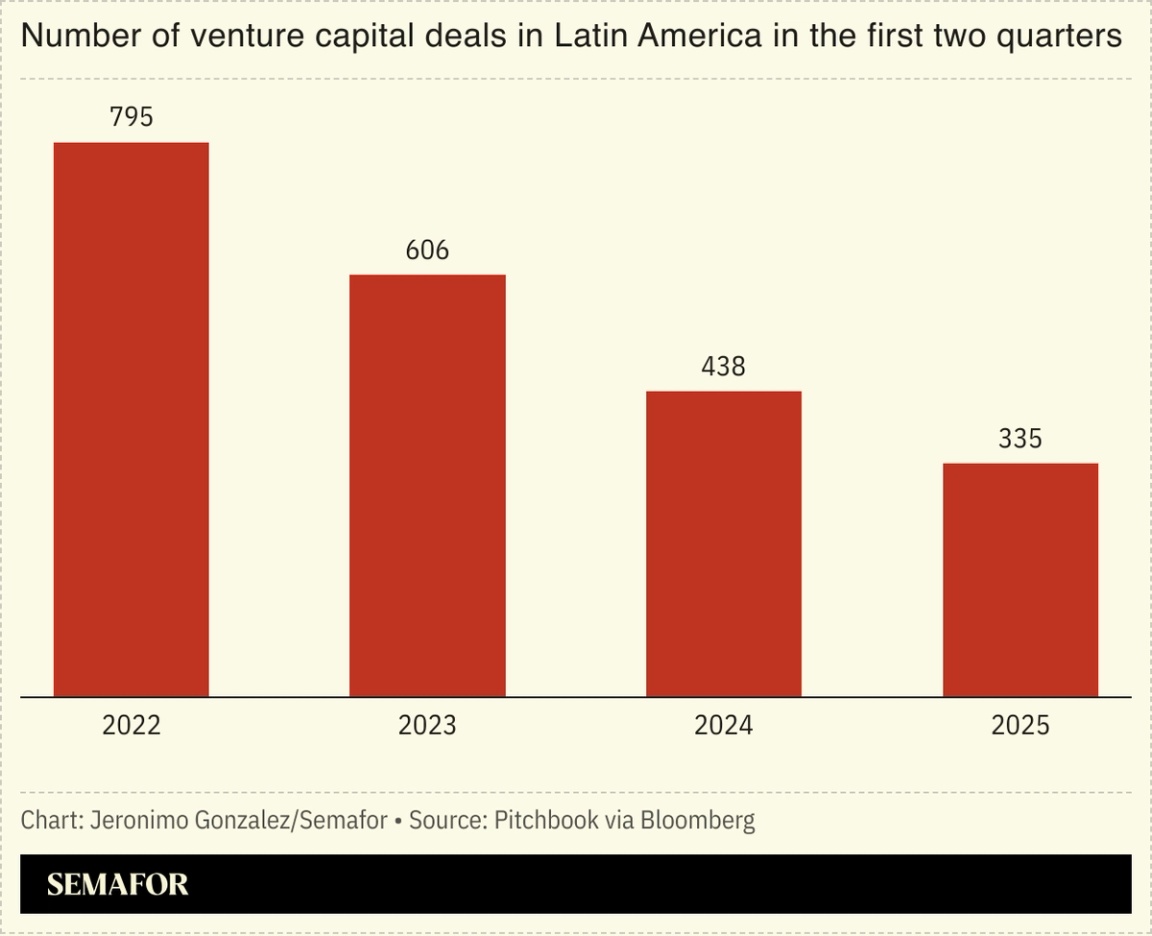 Venture capital investment in Latin America has plummeted because of the simmering trade war and global economic uncertainty. The region is on track for its lowest investment totals in almost a decade, with local funds so far this year raising less than 1% of their 2021 record, when low interest rates boosted startup valuations. “The pricing gap between buyers and sellers has been too wide… in recent years,” an analyst told Bloomberg. Slowing economic growth and persistent inflation across the region, especially in Brazil and Mexico, Latin America’s biggest economies, have further spooked funders. |
|
 US Coast Guard/Handout via/Reuters US Coast Guard/Handout via/ReutersThe floods in central Texas are among the deadliest in the US for over a century. At least 81 people, including dozens of children, are dead and more than 40 still missing, with a huge search-and-rescue operation underway. As the state grapples with the tragedy, it is also confronting the reality of extreme weather events that are becoming ever more frequent. Insurance premiums are up — they rose 19% last year and 21% in 2023, The Washington Post reported recently — and many Texas homes are now uninsurable. The problem is particularly acute as the state has seen huge population growth in recent years, especially in popular metro areas such as Houston and Austin, partly thanks to its low housing costs. |
|
Netanyahu set for Trump talks |
 Leah Millis/File Photo/Reuters Leah Millis/File Photo/ReutersHopes rose that Israeli Prime Minister Benjamin Netanyahu’s meeting with US President Donald Trump in Washington today could lead to a ceasefire. Trump is keen to achieve a peace deal in Gaza, and Netanyahu is in a strong position domestically after attacks on Iran severely weakened Israel’s regional rival. That could give him breathing space to announce a truce without suffering a right-wing revolt, The Guardian reported. Hamas responded “positively” last week to Israel’s proposal of a 60-day ceasefire, although it wants a permanent end to the war. Israel has long rejected that demand, but, under pressure from Trump and isolated diplomatically after nearly two years of war, it has agreed to send negotiators to Qatar for indirect talks. |
|
OPEC+ surprises with big output hike |
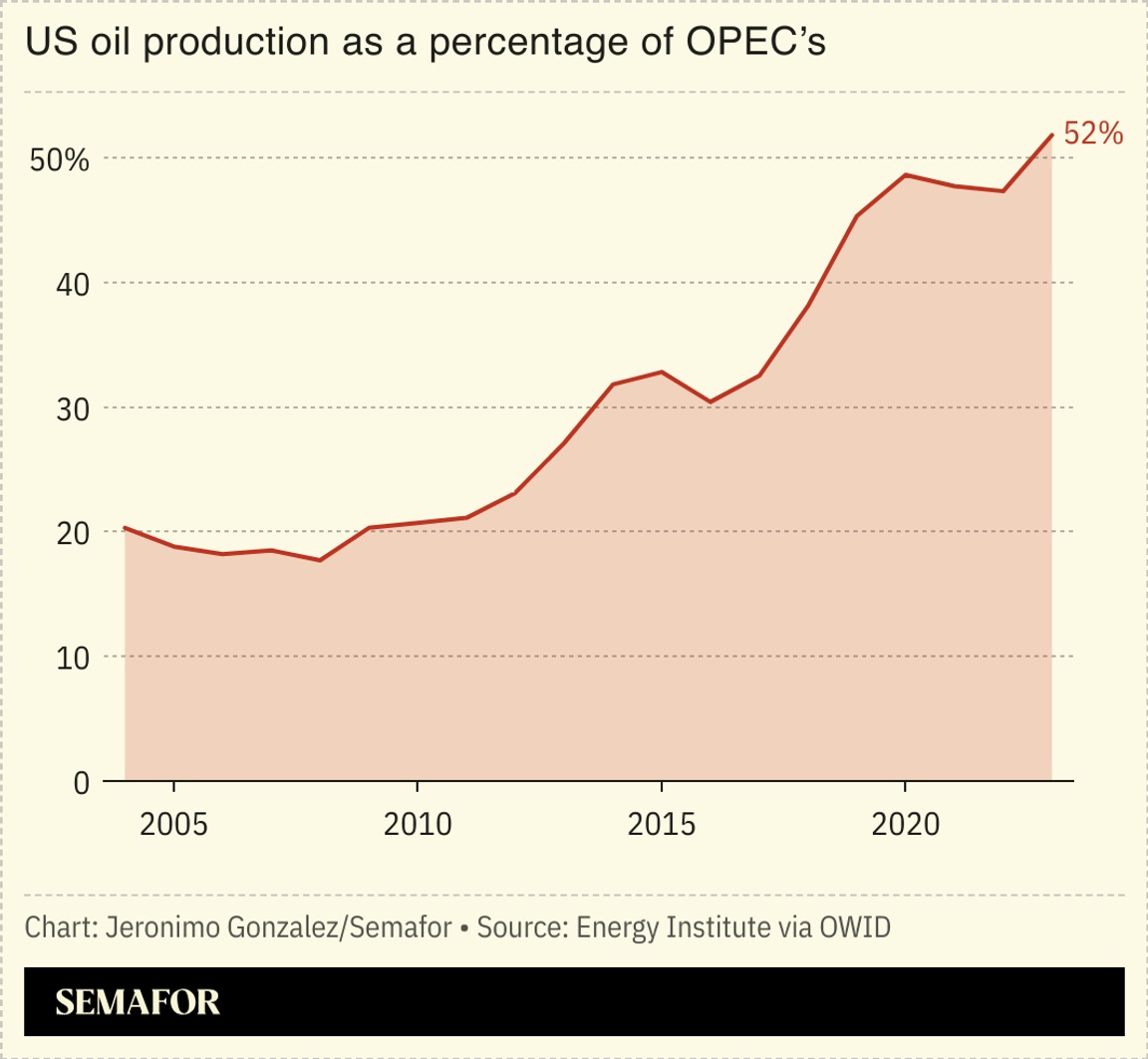 Major oil producers agreed to ramp up output by more than expected despite falling crude prices. The OPEC bloc and its partners have kept increasing production — this time by 550,000 barrels per day — even with prices mired near multi-year lows, officially voicing confidence about global economic prospects and forecasting a strong summer vacation season, a time when car use tends to increase. Yet experts say the persistent steps to raise output are part of long-term efforts to crowd out US shale companies as well as to maintain adherence to national quotas within the grouping, all while addressing US President Donald Trump’s calls for lower oil prices. |
|
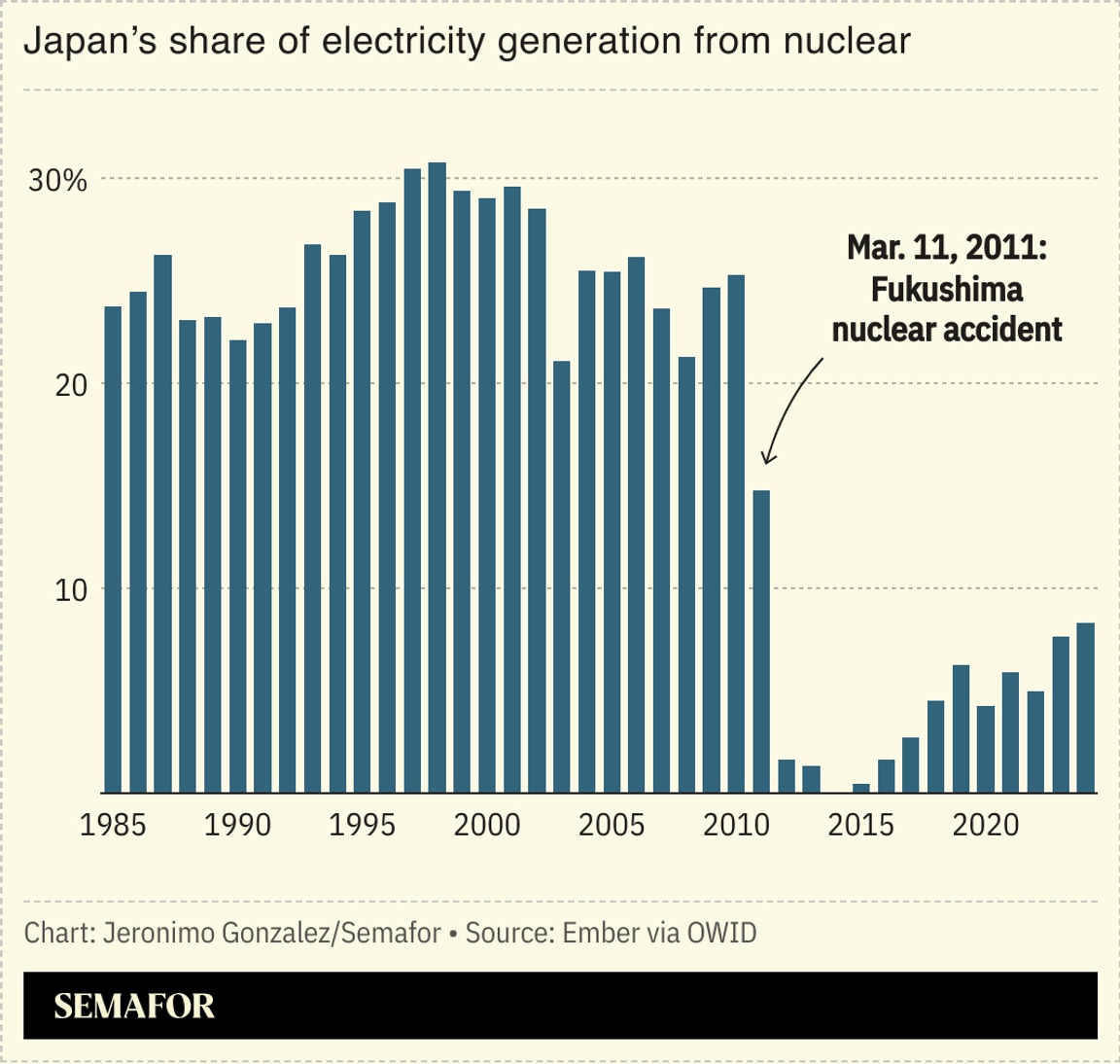 Japan’s nuclear revival is gathering pace. The country all but switched off its nuclear fleet in the wake of 2011’s earthquake and the Fukushima reactor’s subsequent meltdown. But soaring gas prices after Russia’s invasion of Ukraine, growing need for energy for data centers, and Japan’s decarbonization targets have led to a rethink. The country has restarted 14 of the 54 shuttered plants, and plans to build new, small modular reactors on the sites of several others. Tokyo — the most fossil fuel-dependent economy in the G7 — has further-reaching ambitions, too: Last month it announced plans to deploy nuclear fusion power by the 2030s, including a collaboration with British scientists to share technology. |
|
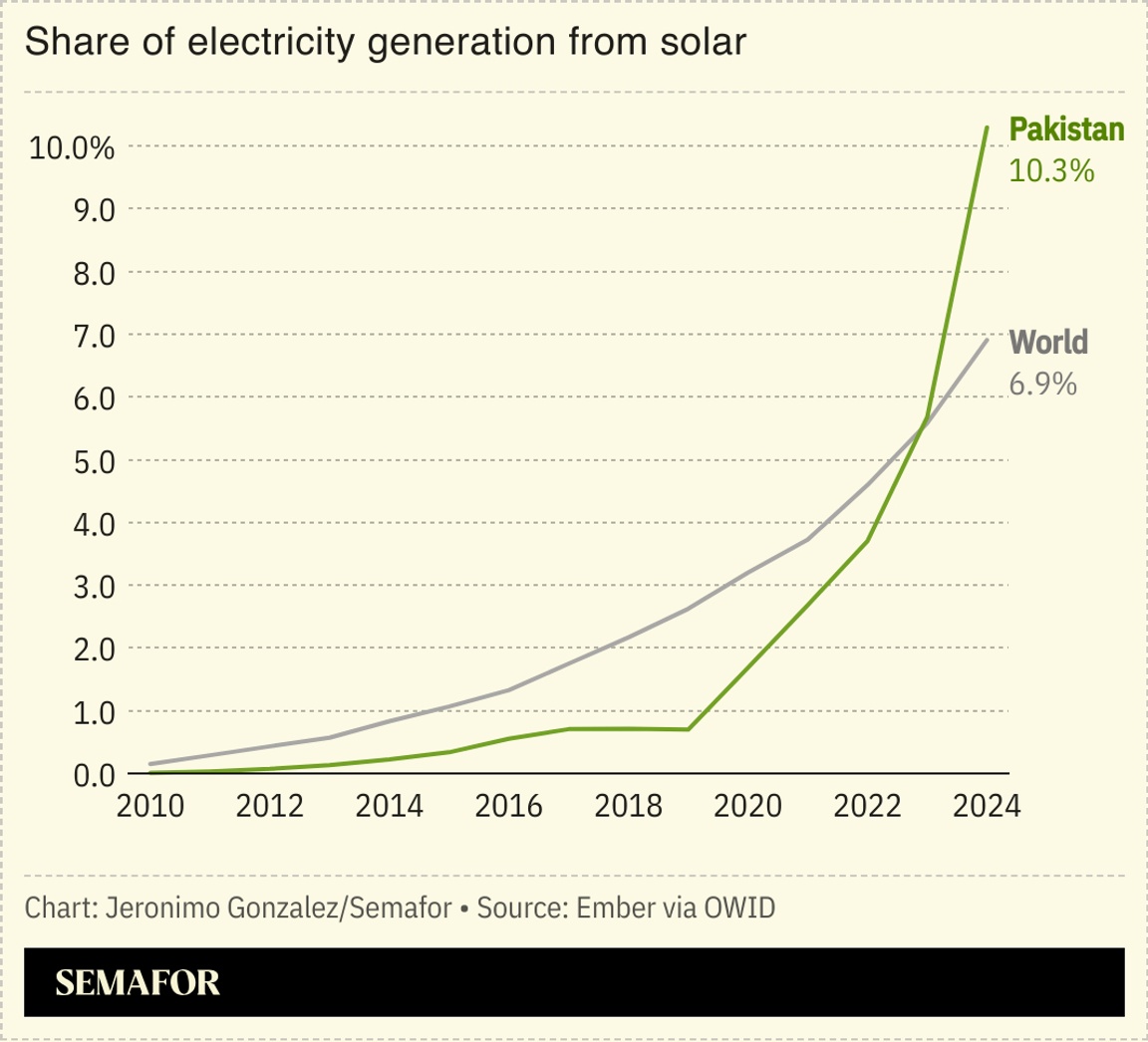 The growth of rooftop solar in Pakistan has reduced energy prices for millions but created a problem for the country’s grid. Islamabad had said it would buy excess energy from rooftop generation in a bid to encourage solar installations. But US tariffs on China have amplified what was already a glut of cheap panels, the Financial Times reported, resulting in faster-than-expected deployment. The grid spent more than $500 million last year buying such power, while the cost of paying for grid-supplied electricity is falling on ever fewer, and increasingly poorer, customers. The government plans to cut subsidies, but households are turning to batteries to let them store their own energy even if they can’t sell to the grid. |
|
Seine reopens for swimming |
 Abdul Saboor/Reuters Abdul Saboor/ReutersThe River Seine reopened for swimming for the first time in more than a century. In the 1970s, the Paris river was considered biologically dead thanks to severe pollution; much of the city’s wastewater poured into it untreated, and wildlife all but disappeared. But after decades of improved sanitation, its ecosystem is thriving, and the number of fish species has tripled since 1990. A $1.6 billion cleanup operation ahead of the 2024 Olympics accelerated the process, and now, three bathing sites have opened, with |
|
|